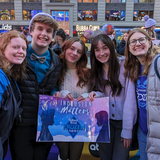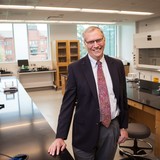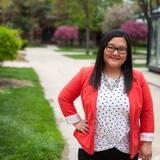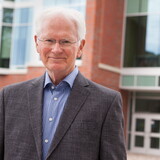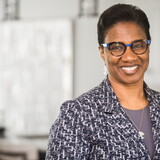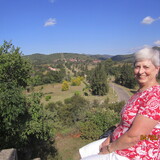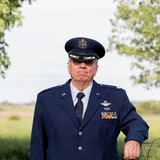A Nebraska Wesleyan University forensic science professor has returned home after a two-week mission in Haiti where she helped identify Americans who perished in the January 12 earthquake.
Melissa Connor, professor and director of Nebraska Wesleyan’s Forensic Science Program, deployed to Haiti on February 24 as a member of the Disaster Mortuary Operational Response Team (DMORT). The team — which operates under the Department of Health and Human Services — was responsible for mobile morgue operations, forensic examination, victim identification and data collection.
“It was good to be part of a group working toward an important goal,” said Connor who could not discuss specific details of her mission.
Connor said her time was split between looking for and identifying remains.
Connor is no stranger to such assignments having worked on grave exhumations in Iraq, Nigeria, Cyprus, Bosnia, Sri Lanka, Herzegovina and Rwanda.
“But this was definitely the most poverty-stricken place I’ve ever been to,” she said.
Connor said there are approximately 112 sites in Port-au-Prince where forensic and medical teams are working to identify some of the nearly 2,000 Americans who have been reported missing.
Albeit a gruesome endeavor, Connor said identifying remains relieves family members of their anxiety, fear and denial.
“Families can have closure,” she said. “And they can begin planning that rite of passage with a funeral. That’s an important part of passage.”
Connor said her chances of returning to Haiti are slim.
“The question becomes, are further remains recoverable?” she said. “So many were buried in mass graves.”
Now that she’s home, Connor is sharing her experience with students. It’s an important part of the liberal arts education, she said. She’s sharing stories of what Haiti was like prior to the earthquake and photos of what the country looks like now. She’s educating her students about the responsibilities of disaster teams and showing them what a military MRE (meals, ready to eat) looks like.
And she’s encouraging her students to recognize how fortunate they really are.
“People who haven’t had an encounter of that kind have no idea what it’s like to live on that level of poverty,” she said. “It makes you realize what you have.”







